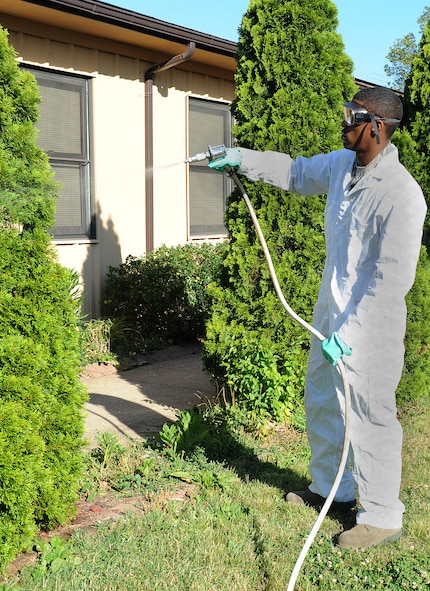This is an installment of our series on professional credentials and gardening expertise. To read the introduction to this series, see Professional Credentials and Gardening Expertise.
Entomologists, Professional Credentials, and Designating Body
Entomology is the study of insects, and is a field within zoology, the study of animals. In the US, the primary professional and scientific society of entomologists is the Ecological Society of America (ESA), which formed in 1889 (ESA, 2019a). The ESA developed the Board Certified Entomologist (BCE) professional certification for professional entomologists with a bachelor’s degree or higher in entomology or a closely related discipline (ESA Certification Corporation, 2019a). The ESA later created the Associate Professional Entomologists (ACE) for those who don’t meet the education requirements of the BCE credential, but do have professional experience and training and work in the pest management industry (ESA Certification Corporation, 2019b). Both credentials are administered by the ESA Certification Corporation (ESA Certification Corporation, 2019a).
Relevance for Gardeners

Gardeners are likely to encounter entomologists in a few different capacities. First, professional certification of an entomologist is a sign of authority. This can be especially important when evaluating the credibility of information available online and reviewing the qualifications of authors. Gardeners should seek information from BCEs or ACEs, in addition to traditional sources of information on insect control like extension publications or peer-reviewed literature. Gardeners are also likely to encounter an ACE in the event that a professional is needed for helping with pest control – whether that be in the garden or in the home. If gardeners are seeking an insect control professional, an ACE professional credential is a good indicator of professional experience and training.
Type of Credential: professional certificate
The BCE and ACE credentials are professional certificates, which means that it is a voluntary program (Knapp and Knapp, 2002). Being a voluntary program, it is legal for entomologists to practice without the certificate. However, it will be up to gardeners to evaluate the experience, training, and education of the entomologist.


Education and Professional Experience Requirements
A bachelor’s degree or higher in entomology or closely related discipline (ecology, zoology, biology, etc.) is required for the BCE credential, while the ACE credential does require a college degree (ESA Certification Corporation, 2019c). BCEs are required to have three years of professional experience if their highest degree is a BS, two years of experience with an MS, and one year of experience with a PhD. ACEs must have 5 years of verified professional experience in pest management. In addition, ACEs must also have an active license or certificate that allows them to apply pesticides without supervision.
Qualifying exams
BCE certified entomologist must past the BCE Qualifying exam with a score of 70% or higher (ESA Certification Corporation, 2019d), while ACEs must pass the ACE exam with a 75% or higher (ESA Certification Corporation, 2019e).
Code of Ethics
BCEs and ACEs are bound by codes of ethics for the respective programs (ESA Certification Corporation, 2019f; g).
Continuing Education
BCEs are required to complete 120 hours of continuing education units via continuing education or professional participation over a three-year reporting period (ESA, 2019b). At least 72 hours of those CEUs must be from continuing education for each reporting period. ACEs are required to complete 18 CEUs over a three-year reporting cycle (ESA Certification Corporation, 2019f).
References
ESA. 2019a. About ESA. Entomological Society of America. https://www.entsoc.org/about/esa (accessed 27 August 2019).
ESA. 2019b. CEU Requirements. ESA Certification Corporation. https://www.entocert.org/ceu-requirements (accessed 27 August 2019).
ESA Certification Corporation. 2019a. About. ESA Certification Corporationf. https://www.entocert.org/about (accessed 27 August 2019).
ESA Certification Corporation. 2019b. ACE Certification. ESA Certification Corporation. https://www.entocert.org/ace-certification (accessed 27 August 2019).
ESA Certification Corporation. 2019c. BCE Requirements. ESA Certification Corporation. https://www.entocert.org/bce-requirements (accessed 27 August 2019).
ESA Certification Corporation. 2019d. BCE Examinations. ESA Certification Corporation. https://www.entocert.org/bce-examinations (accessed 27 August 2019).
ESA Certification Corporation. 2019e. Studying for the ACE Exams. ESA Certification Corporation. https://www.entocert.org/studying-ace-exams (accessed 27 August 2019).
ESA Certification Corporation. 2019f. Maintain my ACE Certification. ESA Certification Corporation. https://www.entocert.org/maintain-my-ace-certification (accessed 27 August 2019).
Knapp, L., and J. Knapp. 2002. The Business of Certification: Creating and Sustaining a Successful Program. 2nd Revised edition edition. Association Management Press,U.S., Washington, D.C.